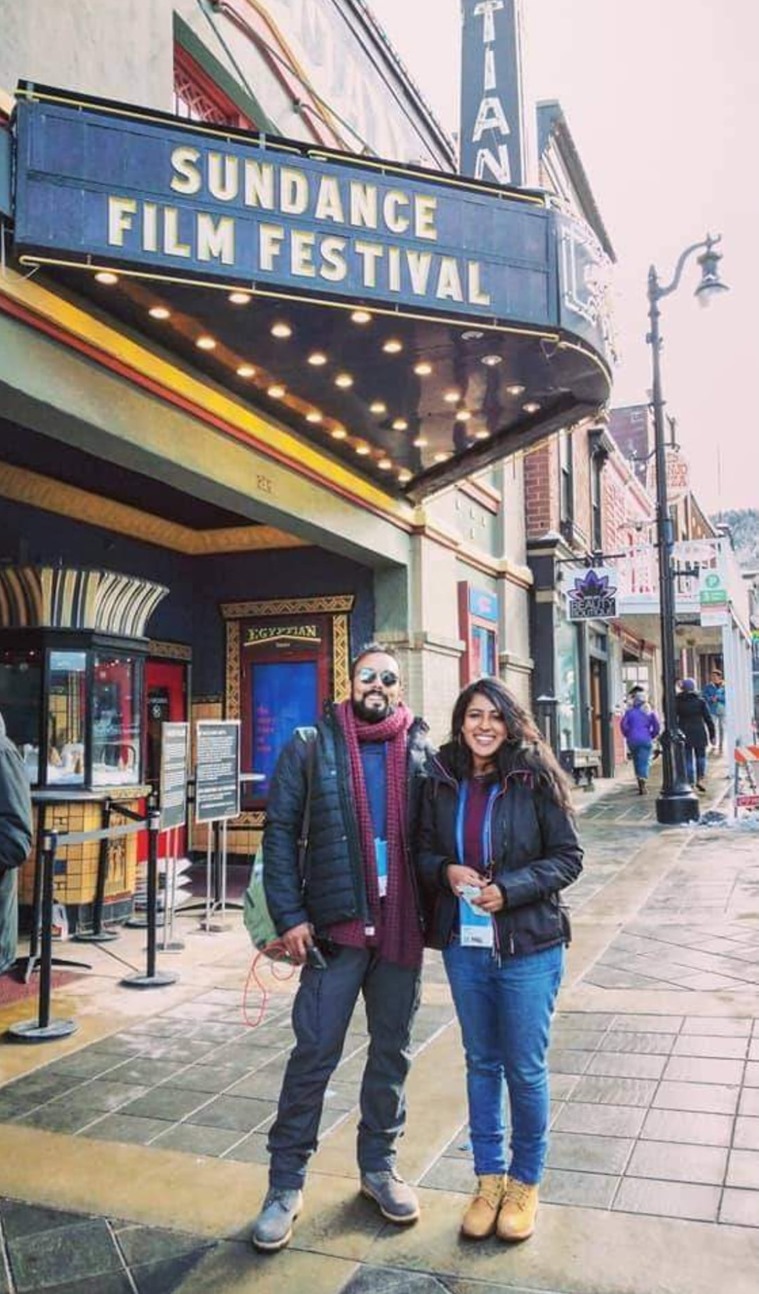Documentary on Dalit women-run newspaper wins awards at 2021 Sundance Film Festival
Amid internet shutdown at the National Capital’s borders, where farmers are protesting against the farm bills, and concerns are being raised regarding freedom of speech, a documentary film by a Delhi-based duo on grassroots journalism has won two awards at the just-concluded prestigious Sundance Film Festival 2021, presented by the non-profit Sundance Institute in the US.
At the virtual award ceremony on Tuesday night, remotely hosted by actor-comic Patton Oswalt, Writing with Fire — written, directed, produced and edited by Rintu Thomas and Sushmit Ghosh — picked up the Special Jury Award: Impact for Change and Audience Award, among the 10 shortlisted films, in the World Cinema Documentary Competition category.
The duo’s debut feature documentary spotlights Khabar Lahariya, India’s only and first-of-its-kind rural newspaper run by Dalit women since 2002, started by Delhi-based NGO Nirantar from Chitrakoot in Bundelkhand region. It is published across Uttar Pradesh and Bihar in rural dialects of Hindi, including Bundeli and Awadhi. “We’re very thrilled for Writing with Fire and Rintu and Sushmit for premiering their labour of love — the story of Khabar Lahariya narrated from their unique perspective, which has garnered global praise and attention — and winning exciting awards at Sundance,” says Khabar Lahariya editor Kavita Bundelkhandi.
 Rintu Thomas and Sushmit Ghosh have previously won the National Film Award for the Best Non-Feature Environment Conservation/Preservation Film in 2012 for Timbaktu. (Photo: Sushmit Ghosh/Facebook)
Rintu Thomas and Sushmit Ghosh have previously won the National Film Award for the Best Non-Feature Environment Conservation/Preservation Film in 2012 for Timbaktu. (Photo: Sushmit Ghosh/Facebook)
The film captures Khabar Lahariya’s switch from print to digital in recent years. It follows chief reporter Meera and her journalists, armed with smartphones and unwavering grit, as they “break traditions on the frontlines of India’s biggest issues and within the confines of their own homes”, questioning notions of patriarchy and power, investigating local police-force incompetence, listening in and standing by victims of caste and gender violence. At a gender-equity online forum in December, Meera had said, “news about Dalits, especially Dalit women, goes unwritten in not just mainstream national media but even in regional media.”
The wife-husband team, Thomas and Ghosh, graduated from AJK Mass Communication Research Centre, Jamia Millia Islamia, in 2006 and founded the production agency Black Ticket Films, which is “invested in the power of non-fiction storytelling”. They have been making short films for over 12 years and have won the National Film Award for the Best Non-Feature Environment Conservation/Preservation Film in 2012 for Timbaktu. Produced by Public Service Broadcasting Trust, it explores issues of food security, organic farming and farmers’ efforts in a tiny Andhra village.
“Sundance is a space that celebrates independent voices and thought. This is an incredible moment of joy for us, the film, our characters and the Indian documentary filmmaking community. Knowing that the film has been lauded by both the jury and its first audience tells us that when we tell our stories, they have the power to ignite new imaginations and possibilities,” says Thomas.
The two other Indian stories that screened at this festival edition were Ajitpal Singh’s debut feature family drama Fire in the Mountains and Alisha Tejpal’s short film Lata, an India-US production, on how a help navigates space and time in an upper-class home.
